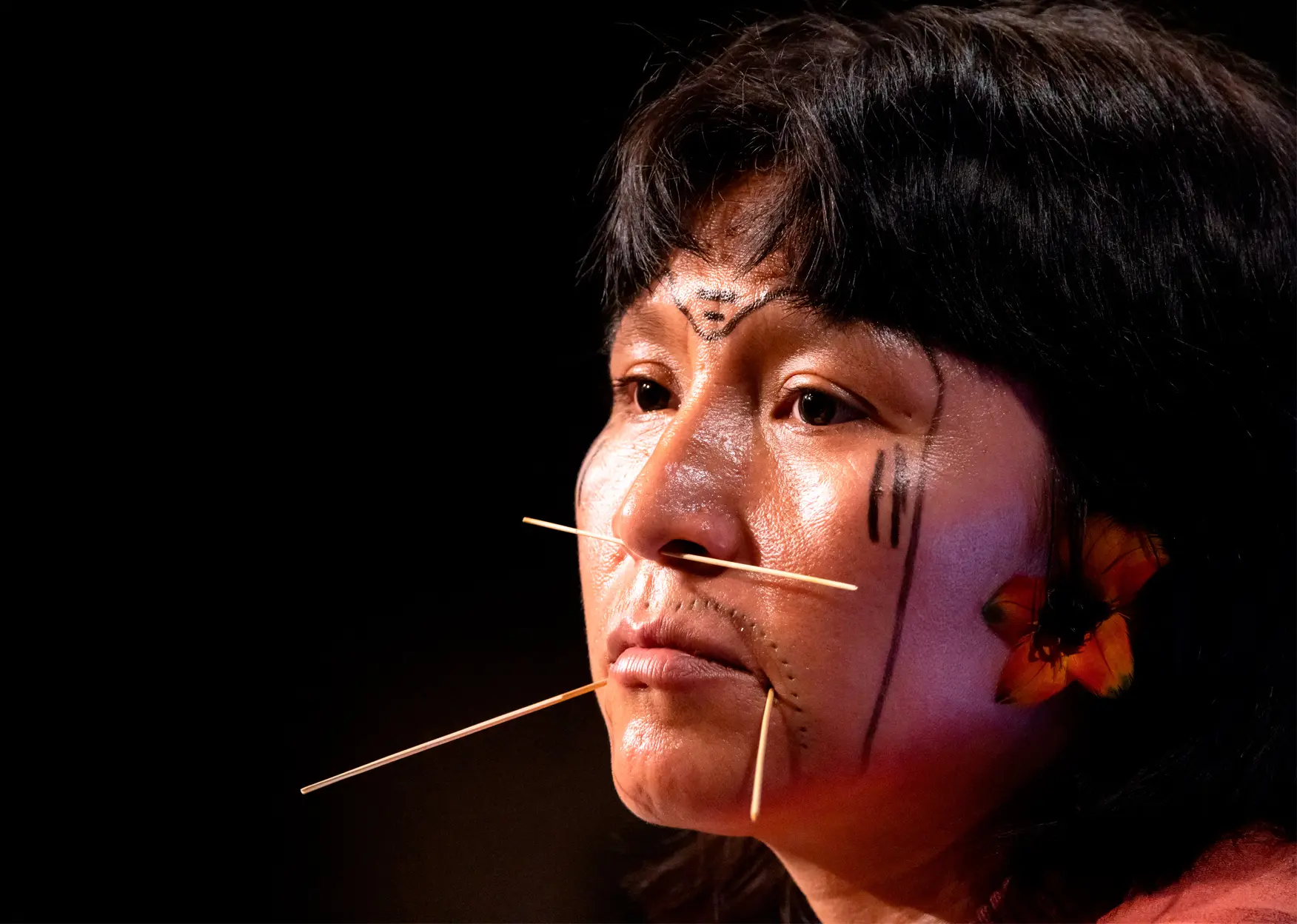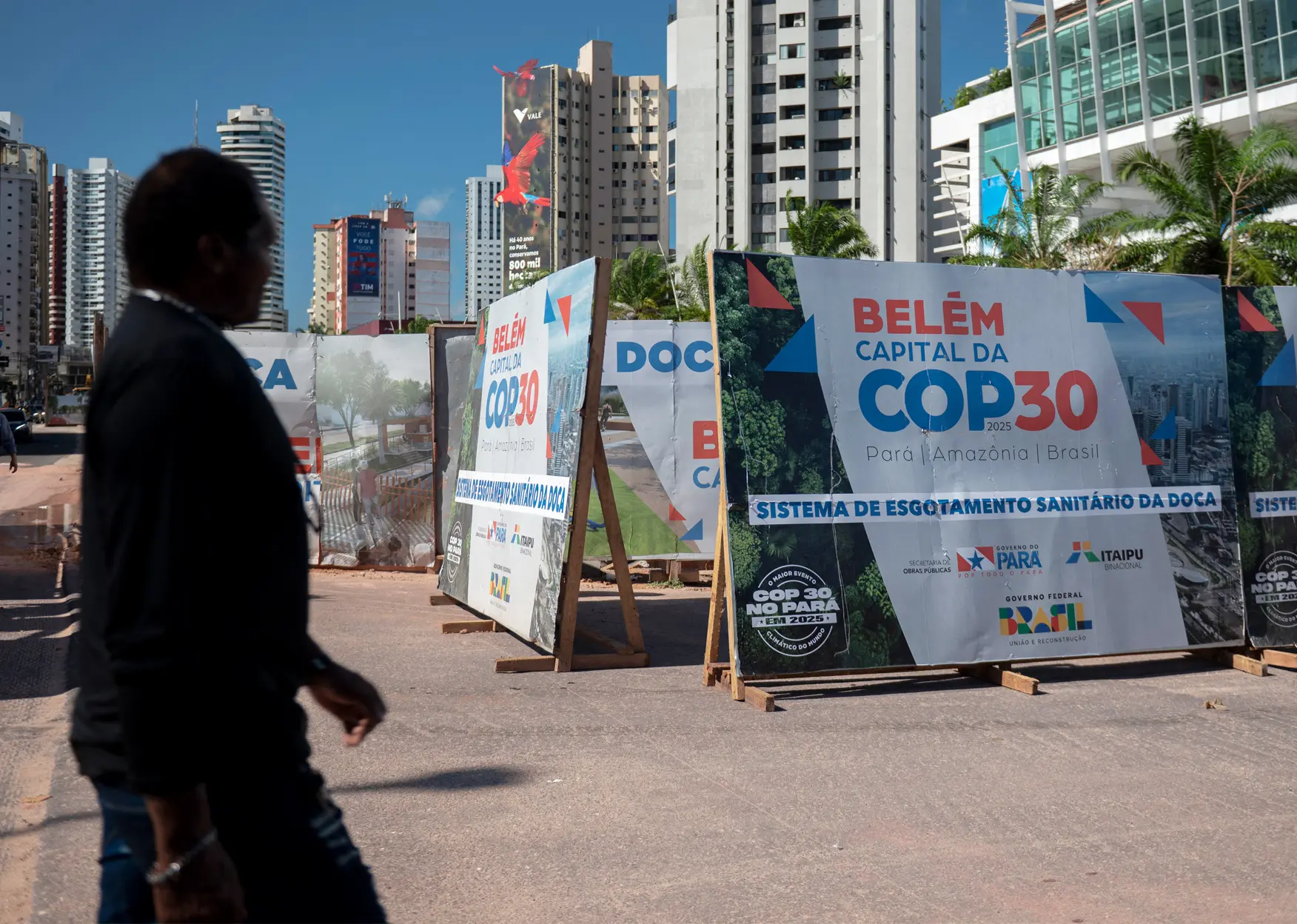The “agenda of negotiations” for the climate conferences is what produces the agreements adopted by all of the countries and is valid as international law. These agreements depend, however, on consensus among the over 190 nations that are part of the Climate Convention and Paris Agreement, which aim to keep the planet’s temperature from rising and therefore prevent life from going extinct.
This year, finding consensus between governments has been a tough job because of the global context. By making climate denialism an official policy and explicitly using the economic and military might of the US to threaten other countries, Donald Trump has exacerbated a breakdown in international relations that was already underway. In recent years, the world has been incapable of stopping Russia’s war in Ukraine and the massacre of Palestinians by Israel, for example.

TRUMP AT A MILITARY PARADE IN WASHINGTON: THE US PRESIDENT BROUGHT DENIALISM TO POWER AND ABANDONED AN ALREADY SHAKY MULTILATERALISM. PHOTO: MANDEL NGAN/AFP
Adding to the problem, the agenda of negotiations for COP30, the first climate conference being held in the Amazon is full of holes. Just as occurs every year since the first COP in 1995, the items on this agenda are inherited from previous conferences. This year’s agenda is not very ambitious, because in theory, nearly every topic that needed to be negotiated based on the Paris Agreement – the international treaty on climate change signed at COP21, in 2015 – has already been negotiated. One huge exception is that previous negotiations did not indicate clear paths to implementing fundamental measures to contain climate change, such as eliminating fossil fuels.
The social and environmental movement has been pressuring Brazil’s COP30 leaders to propose more ambitious agreements. Now, this pressure has been given a boost with a historic ruling handed down on June 23 by the International Court of Justice, the main court of the United Nations. Based on international treaties on climate, biological diversity, and human rights, the court ruled that every country has an obligation to act against climate change and they should cooperate with each other to do so.
Although it is up to each country to determine their goal for reducing greenhouse gas emissions, the UN court said this goal cannot be arbitrary and should represent “an adequate contribution” to keeping the planet’s temperature from rising above 1.5° C, as determined by the “primary” objective of the Paris Agreement. The court moreover found that countries which fail to fulfill their obligations may be held legally responsible for this failure. The decision is an “advisory opinion,” which means there is no mandate for any government to obey it. It nevertheless carries political and legal weight and can support actions in national and international courts.
The opinion from the UN court reiterates a demand for more concrete and ambitious goals for COP negotiations in Belém. On August 1, the conference president, André Corrêa do Lago, and its executive director, Ana Toni, said they are in discussions with countries and regional groups to fill the gaps in the agenda. “This is our number one priority for the next hundred days,” Toni said. Check below to see the current status of the main negotiating items and find out what the International Court of Justice’s opinion says about some of them, according to an adapted version of another report published by SUMAÚMA.
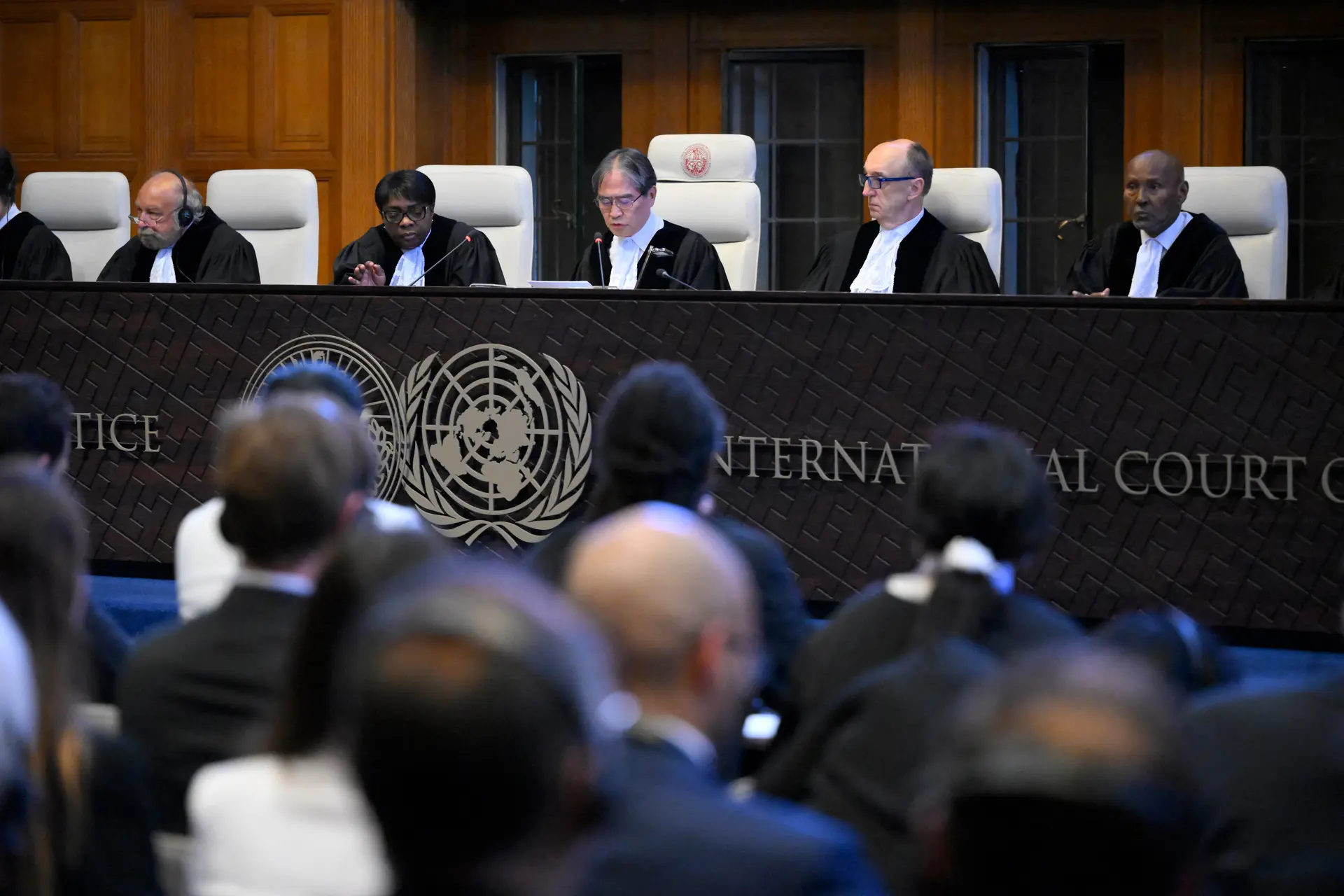
INTERNATIONAL COURT OF JUSTICE: THE UN COURT SAID ALL STATES HAVE A LEGAL OBLIGATION TO KEEP THE PLANET FROM HEATING. PHOTO: JOHN THYS/AFP
The fight for a timeline to eliminate fossil fuels
There isn’t one specific item on the agenda at the climate conferences to discuss gradually eliminating fossil fuels. The commitment to “transition away from fossil fuels” appeared at climate negotiations for the first time as part of the agreement on the Global Stocktake, the name of the document approved at COP28, in 2023, which lists the steps needed to fulfill the Paris Agreement. Like many climate documents, the Global Stocktake is also vague on some points of this issue. It does not, for instance, specify whether this includes the use or production of oil, gas, and coal. Yet it does affirm that elimination should be accelerated “in this critical decade.”
Along with the Global Stocktake, COP28 also approved the creation of the United Arab Emirates Dialog to discuss its implementation. Nevertheless, dialog negotiations did not move forward at COP29, in 2024, in Azerbaijan. The difficulties continued into the mid-year Climate Convention meeting held in Bonn, Germany, which kicks off the negotiations that will – or will not – be finalized at the COP held later in the year. Negotiators in Bonn sent two different drafts on implementing the Global Stocktake to Belém. Neither specifically mentions fossil fuels.
Most of the countries reject the creation of a monitoring mechanism for implementation of the Global Stocktake and say this should be dealt with by each country individually, within national targets to reduce greenhouse gas emissions. Social and environmental organizations argue fossil fuels are an essential topic and should be dealt with separately, since the burning of these fuels accounts for over 75% of emissions. It’s the “mammoth in the room,” according to Claudio Angelo, an international policy coordinator with the Climate Observatory.
Since COP28, civil society and some governments have been advocating for the establishment of a timeline to gradually eliminate fossil fuels, with rich countries taking the lead. Brazil included the timeline proposal in the document it submitted in November 2024, containing its goals to reduce greenhouse gas emissions by 2035. In June, a letter signed by over 250 scientists asked President Lula to lead an initiative along these lines.
A survey by the Oil Change International organization showed that four wealthy countries (the USA, Canada, Norway and Australia) are responsible for 70% of the growth in fossil fuel production forecast up to 2035. The Trump-led United States individually accounts for most of these plans. Brazil ranks ninth on the list of the 20 countries with the biggest projects to bolster production, above Saudi Arabia. The Lula administration intends to open a new front for oil exploration in the Foz do Amazonas Basin, an extremely environmentally-sensitive region.
Pressure from the social and environmental movement for Brazil to propose separate negotiations to eliminate fossil fuels at COP30 was reiterated by the International Court of Justice’s advisory opinion. The opinion says nations that do not take “appropriate measures” to draw down fossil fuel production and consumption, as well as the concession of new drilling licenses and subsidies for fossil fuels could be charged with committing “an internationally wrongful act.”
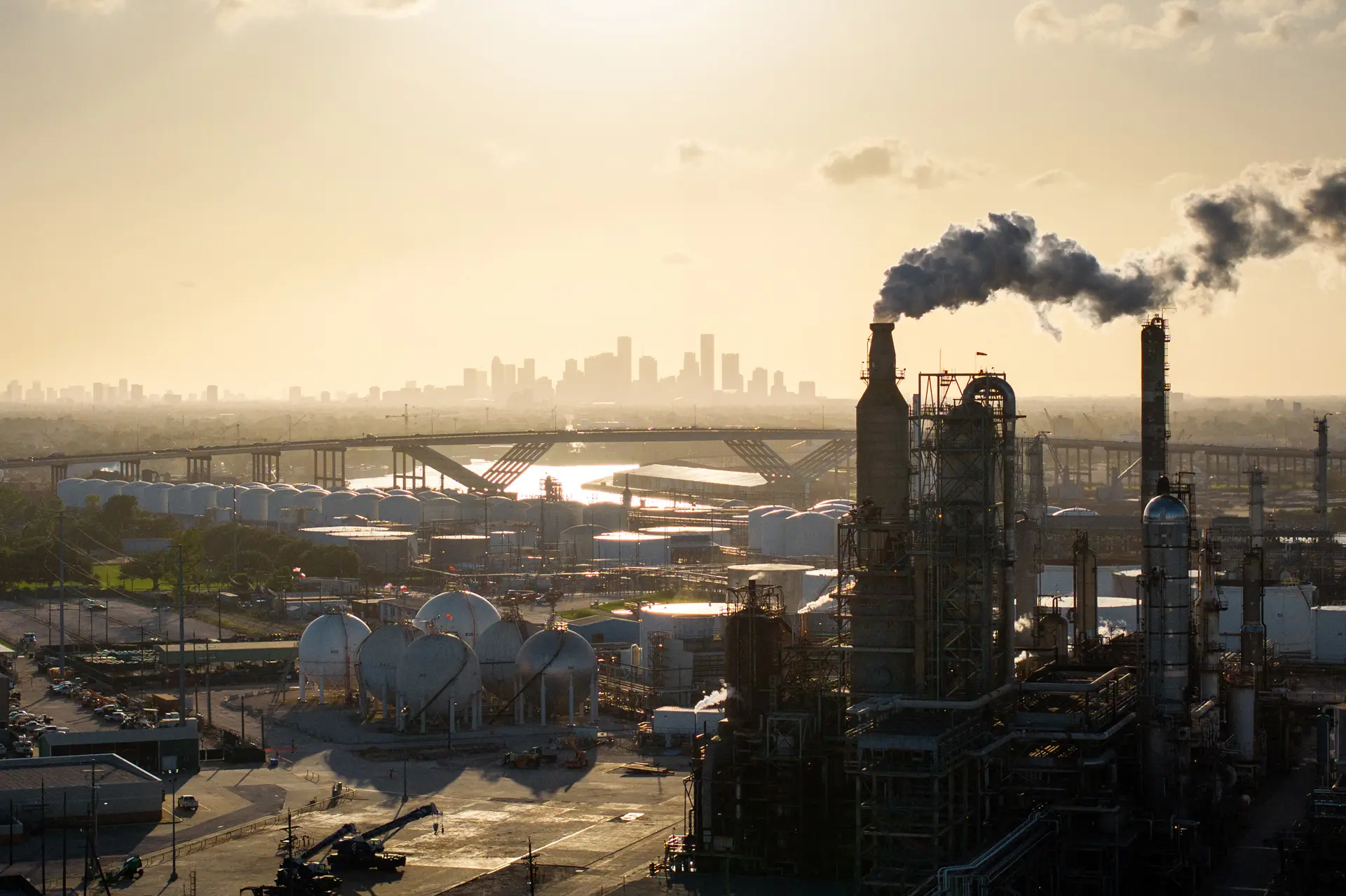
A REFINERY IN TEXAS: THE UN COURT SAYS COUNTRIES CAN BE SUED FOR FAILING TO CUT FOSSIL FUEL PRODUCTION AND CONSUMPTION. PHOTO: BRANDON BELL/GETTY IMAGES/AFP
A plan of action for every forest
Just like with fossil fuels, there is no specific item on the agenda of climate conference negotiations for forests. This topic is covered by the Global Stocktake, which underscores the importance of conserving, protecting and restoring Nature and ecosystems and includes the goal of eliminating deforestation by 2030. The Global Stocktake discusses the need for support and financing to reach this goal, but it does not establish the creation of a plan to make this happen. There is a reference to paying for emissions reductions, which is one of the consequences of fighting deforestation – as is the case of the donations received by the Amazon Fund, for instance.
COP30’s Brazilian leaders intend to prioritize finance for standing forests and forest restoration in what is referred to as the COP30 “action agenda,” which covers commitments among groups of countries, companies, and organizations. These commitments do not, however, carry the weight of international law. The government hopes to launch the Tropical Forest Forever Facility, also known as the TFFF, a market mechanism for compensating forest countries for the so-called “ecosystemic services” these biomes provide, such as preserving biodiversity and regulating rainfall. This fund is not, however, an instrument included in the climate negotiations. A resolution establishing formal synergy between the three conventions (on the climate, on biological diversity, and to combat desertification) that came out of Rio-92, the UN Conference on Environment and Development held in Rio de Janeiro in 1992, is also set to be approved in Belém.
Similar to fossil fuels, social and environmental organizations argue Brazil should propose a COP decision on forests. Greenpeace released a proposed action plan to end deforestation worldwide. “We don’t yet have a structuring approach to the topic of forests within the Climate Convention,” according to Camila Jardim, of Greenpeace Brazil. “Brazil is an example of a forest country that has acted decisively to fight deforestation and could lead this plan,” she suggests.
The UN court’s opinion notes that containing climate change involves both reducing emissions as well as strengthening “carbon sinks,” such as forests, other terrestrial biomes, and the oceans. These sinks remove greenhouse gases from the atmosphere.
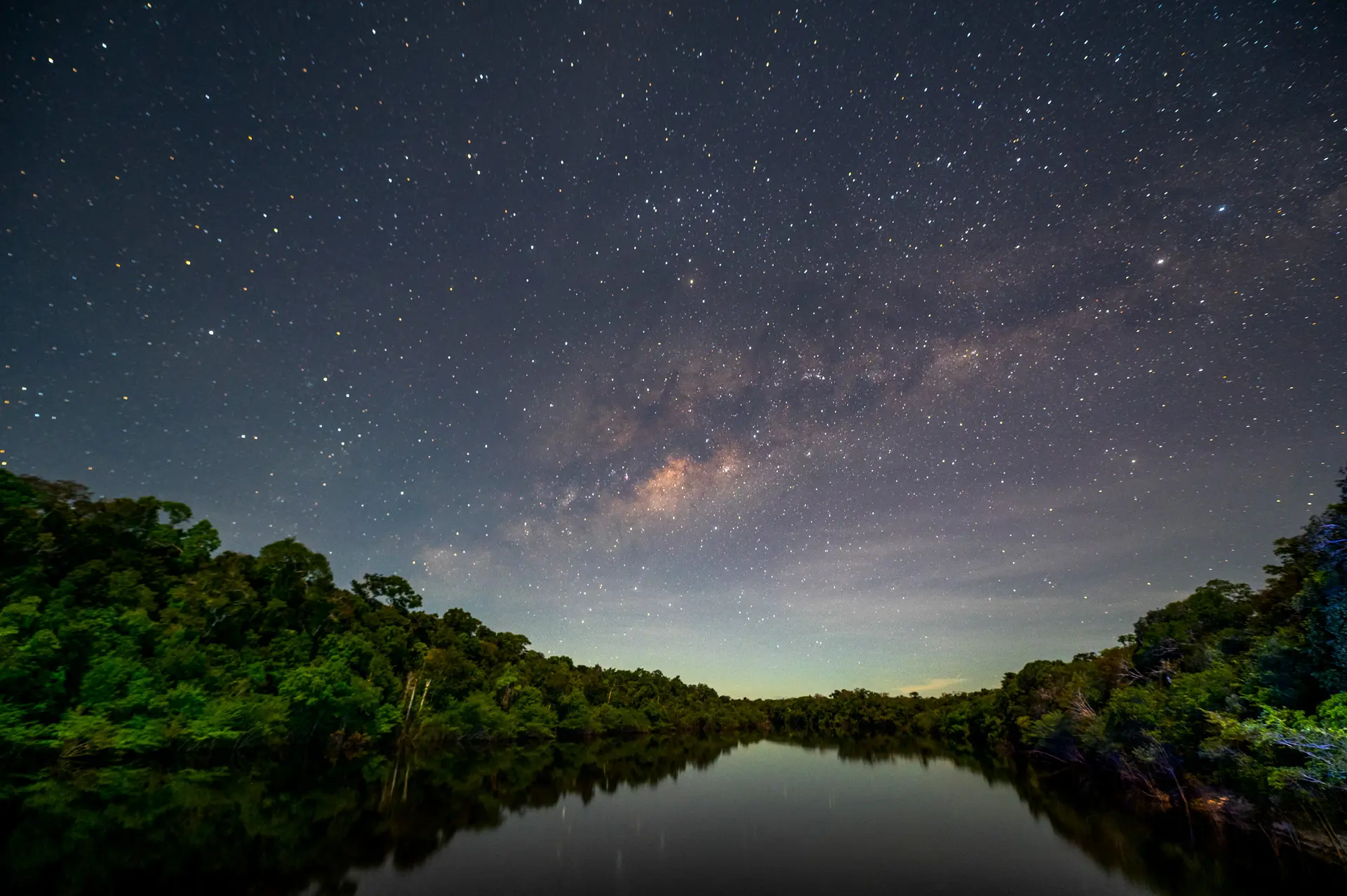
MANICORÉ RIVER, AMAZONAS: BIOMES THAT REMOVE CARBON FROM THE ATMOSPHERE MUST ALSO BE PRESERVERED TO HALT CLIMATE CHANGE. PHOTO: MAURO PIMENTEL/AFP
A just transition still has no destination
The work program on a just transition was established at COP27, in Egypt, to tackle the Paris Agreement goal on a “just transition of the workforce and the creation of decent work and quality jobs.” This concept was expanded in discussions. It went on to include not only formal and informal workers, but also participation and the rights of other groups in society – such as Indigenous people, immigrants, and young people – in building a socio-economic model compatible with preserving life and not entrenching inequalities.
There was no agreement on approving a text on a just transition at COP 28 or COP 29. Yet at the June meeting in Bonn, this was one of the points that made the most progress in negotiations. The draft sent to Belém for the first time includes Afro-descendants among the groups considered priorities in the concept of a just transition. Following a suggestion from Colombia, this is also the only document to come out of Bonn that mentions gradually eliminating fossil fuels, in a paragraph discussing expanded access to clean energy. However, the Arab countries suggested an alternative text at the last minute that omits this mention – the final text will be negotiated in Belém.
Beyond this, the major question is whether or not a mechanism will be established to monitor and support implementation of the agreement on a just transition or whether it will just be a statement of intentions.
“The just transition is one of the newest topics at the Climate Convention, but it is extremely relevant,” according to Mariana Belmont, of Geledés – the Black Women’s Institute. “It has a social view that was missing in discussions on mitigation and climate adaptation. This movement needs to advance, so the processes in this transition don’t increase inequalities. Let’s keep track of the next steps for the permanence of Afro-descendants and the creation of a structure that points us toward human rights on the climate agenda.”
The ruling by the International Court of Justice draws a clear connection between a duty to contain the climate emergency and human rights, stating the effects of climate change can significantly impair the enjoyment of these rights, including the right to life, health, and access to food and housing, as well as the rights of women, children and Indigenous peoples.
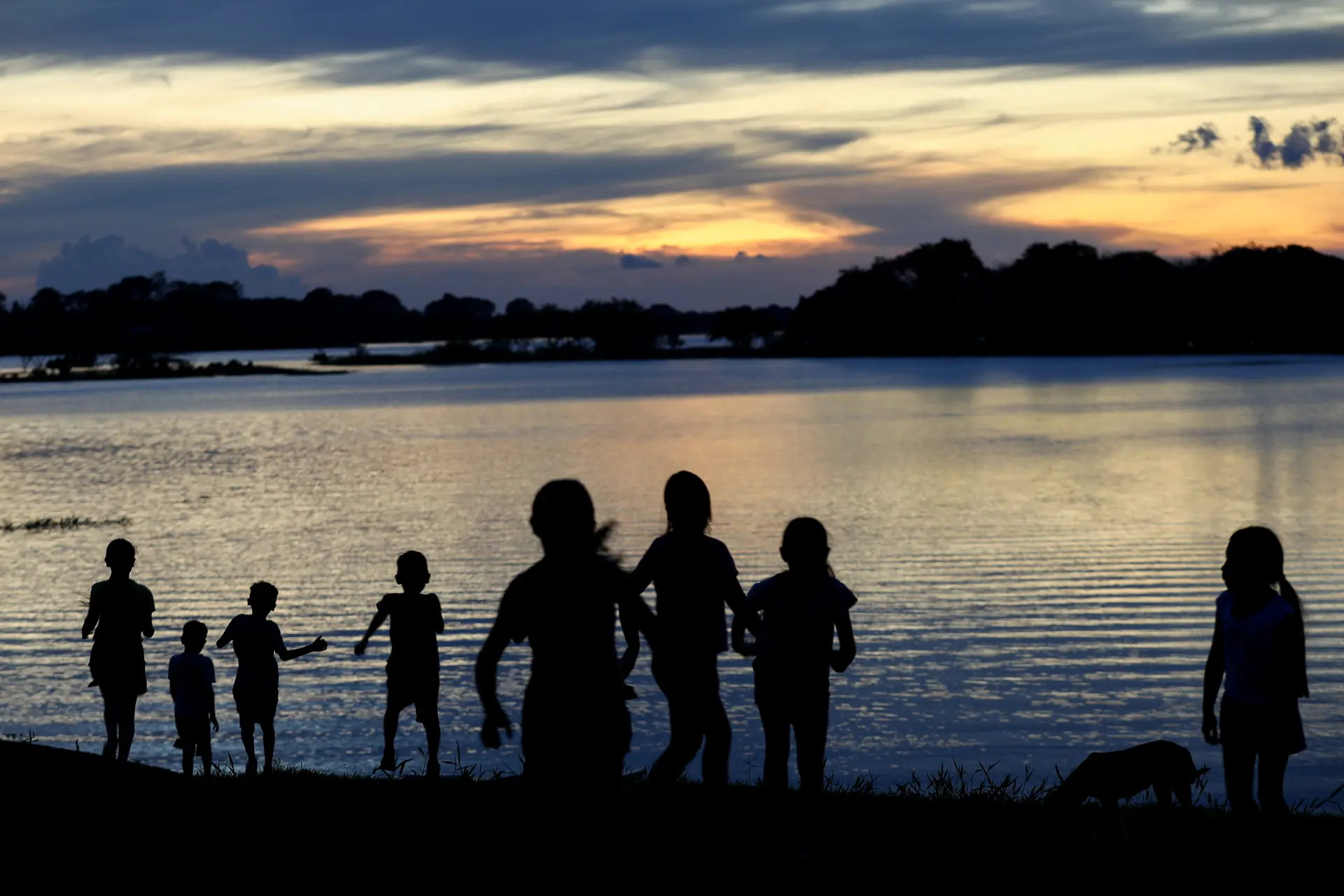
INDIGENOUS CHILDREN IN AUTAZES: THE BROKEN BALANCE OF THE CLIMATE AND ENVIRONMENT THREATENS HUMAN RIGHTS TO LIFE AND HEALTH. PHOTO: MICHAEL DANTAS/SUMAÚMA
What to do with the ‘ambition gap’
Based on the Paris Agreement, every country should submit their new emissions reduction targets this year, also known as their Nationally Determined Contribution or NDC, listing targets up to 2035. By the time this story went to press, on July 28, only 27 had submitted their targets, with China and the European Union among those who have yet to do so. Prior to COP30, the Climate Convention should release a document on the new NDCs, which will say whether the group of countries’ commitments are sufficient to fulfill the Paris Agreement. A negative response is expected as is an “ambition gap.” This means countries will need to exceed their current promises to keep the planet’s average temperature from rising, ideally keeping this rise at under 1.5° C compared to the pre-industrial period, or at least under 2° C.
There is no formal item on the agenda of negotiations in Belém to discuss this “ambition gap.” It is nevertheless seen as certain that this topic will be discussed at the summit of government leaders preceding COP30, or at the conference itself. The question is whether this will result in any declaration or consensus document among all the countries. “If the assessment of the NDCs shows a situation in 2035 that doesn’t seem good, we’ll have to act collectively to change it. These are extraordinary times that require much more unity. We have to recover our sense of urgency at every level and we can’t be paralyzed by the international context,” according to diplomat Túlio Andrade, the head of strategy and alignment for COP30.
Not enough money for adaptation
A decision at COP26, in Glasgow, Scotland, created a work program related to the global goal on adaptation, or GGA, set forth in the Paris Agreement. The idea is to establish indicators for the progress countries make adaptation to climate change. This item of the climate conference negotiations is closely related to people’s daily lives.
The definition of 100 indicators, with the help of experts, should be finalized this year and approved in Belém. Negotiations were nevertheless nearly brought to a standstill at the Climate Convention meeting in Bonn, in June, because of resistance from wealthy nations to including means of implementation within the indicators, or rather, the monetary and technological resources for countries to adopt adaptation measures. The so-called “developing” countries argued this financing should be public, since adaptation is highly dependent on infrastructure works that do not bring in profits, making them unattractive to the private sector.
In the end, the means of implementation were kept in the text that will be considered in Belém. “The inclusion of indicators on means of implementation is certainly a good sign,” according to Thaynah Gutierrez, with Rede por Adaptação Antirracista, an anti-racist adaptation network. “Yet this good sign came with major uncertainty, since COP30 needs to guarantee financing to implement the indicators and targets agreed upon,” she explains. Thaynah sees another challenge in including Afro-descendent populations as a priority group in the adaptation agenda – this mention was at one point included, but ended up being taken out of the document negotiated in Bonn. “The COP30 president has been vocal in mentioning Afro-descendants at every round of negotiations, but behind-the-scenes dialog with the countries is still lacking.”
The opinion from the International Court of Justice also highlights the legal requirement to adopt adaptation measures, since they “complement the mitigation obligations [emissions reduction] in preventing and reducing the harmful consequences of climate change.”
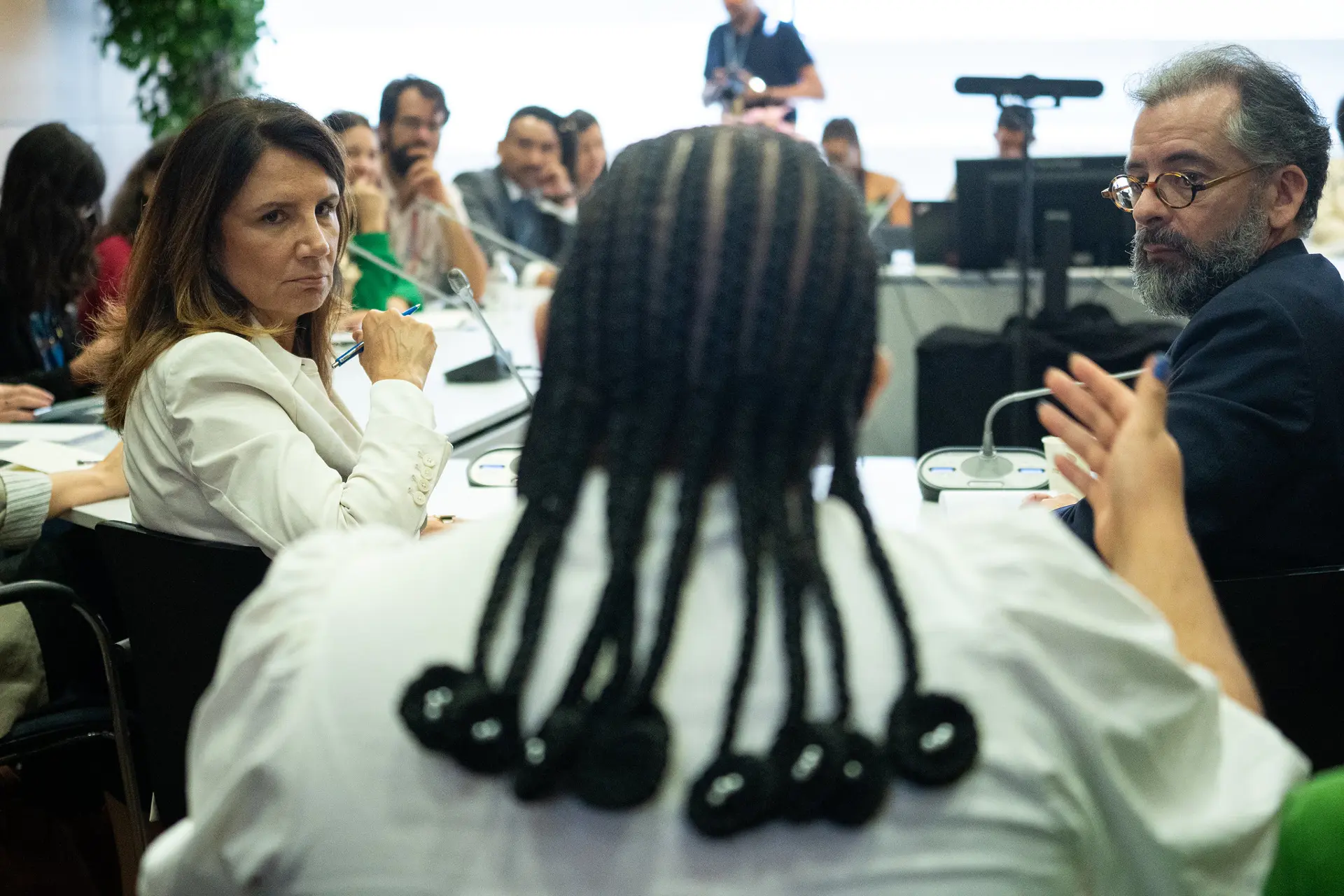
COP30 LEADERS MEET WITH CIVIL SOCIETY: AFRO-DESCENDANTS WANT TO BE ONE OF THE PRIORITY GROUPS IN ADAPTATION MEASURES. PHOTO: RAFAEL MEDELIMA/COP30
The Baku-Belém financial tangle
In theory, the negotiation on finance within the climate conferences was finalized at COP29. In Baku, a new goal of US$ 300 billion per year was set for the wealthy countries to finance the other countries, a sum set to be reached only in 2035. This amount was seen as insufficient in light of needs estimated to cost at least US$ 1.3 trillion annually. There was also dissatisfaction with the text of the agreement because it attributes substantial weight to “mobilization” of private investments. This is why the issue came back this year, with countries like India and Bolivia pressing to reopen negotiations on finance. The matter could deadlock negotiations in Belém, and there is still no information on what approach will be proposed by COP30’s Brazilian leaders.
Based on the 1992 Climate Convention, finance obligations are to be borne by the “historical polluters,” the 24 countries that were part of the Organisation for Economic Co-operation and Development at the time, including the United States (which Trump withdrew from the Paris Agreement), European nations like France and Germany, Canada, Australia, New Zealand and Japan. This obligation was consecrated in the principle of “common but differentiated responsibilities.” The International Court of Justice opinion reaffirmed this principle, but introduced a nuance into this discussion. The document says a country’s status as “developed” or “developing” should not be considered “static,” but rather “depends on an assessment of the current circumstances of the State concerned.” This means countries that currently have very high emissions or are monetarily rich – such as Saudi Arabia, China or Russia – could be considered among those with an obligation to finance the rest.
In the meantime, what concretely exists is that the COP29 agreement tasked Brazil and Azerbaijan with creating a “Baku-Belém roadmap” to indicate means for climate finance to reach US$ 1.3 trillion per year. At the mid-year Climate Convention meeting, in Bonn, the Treasury Ministry’s secretary of international affairs, Tatiana Rosito, introduced some of the measures that will be proposed. Most are outside of the climate conferences’ scope of decisions, such as reforming multilateral development banks (institutions like the World Bank and the Inter-American Development Bank) and increasing “concessional” lending, which are loans with special payment conditions for countries with fewer resources. The wealthy countries are currently even slashing so-called “development aid,” which is not necessarily connected to the need to contain the climate emergency.
Social and environmental organizations are asking for the roadmap to place a greater emphasis on public financing of climate action and include proposals such as forgiving the foreign debt held by poorer countries so they can invest in the ecological transition. Another point seen as essential for civil society is the inclusion of the “polluters pay” principle, establishing extraordinary taxes on the sectors that are the biggest emitters, like the oil industry. This money would be used to help the countries in efforts to reduce emissions and adapt to the effects of climate change.
One question hovering over the “roadmap” is whether or not it will somehow be incorporated into formal decisions at COP30. “The Baku-Belém roadmap is not an item under negotiation, it is a report resulting from the negotiation between the two presidents and will be presented to the countries,” WWF’s Tatiana Oliveira explains. “We don’t know if it will be mentioned, if it will be adopted, if it will get a boost in the final document. Without this, it lacks teeth, as we say in international law,” she adds. In other words, it could end up as yet another report without any real power to influence reality.
Afro-descendants included in gender plan
In 2014, a work program on gender and climate was established at COP20, in Lima, Peru, which created an action plan for consideration of gender issues in climate policies. This plan expired in 2024, and the work program is creating a new plan to replace it. For the first time, the draft that left Bonn for Belém mentions Afro-descendent women and girls as one of the groups that should be prioritized in climate policies.
This inclusion was the result of a strategy used by anti-racist and Black advocacy organizations in Brazil to intervene in climate negotiations. The demand relied on support from Brazil’s negotiators. Leticia Leobet, with Geledés – the Black Women’s Institute, recalls that Afro-descendants had already been mentioned at the Bonn meeting last year, but were removed when negotiation on the new action plan reached COP29, in Baku. “This year is a different, more optimistic scenario. Brazil proposed including Afro-descendents, and the COP is being held in Brazil. We’re expecting the Brazilian negotiators to hold the conversations needed to sustain the proposal,” Leticia says, recalling that Afro-descendants make up 56% of the country’s population.
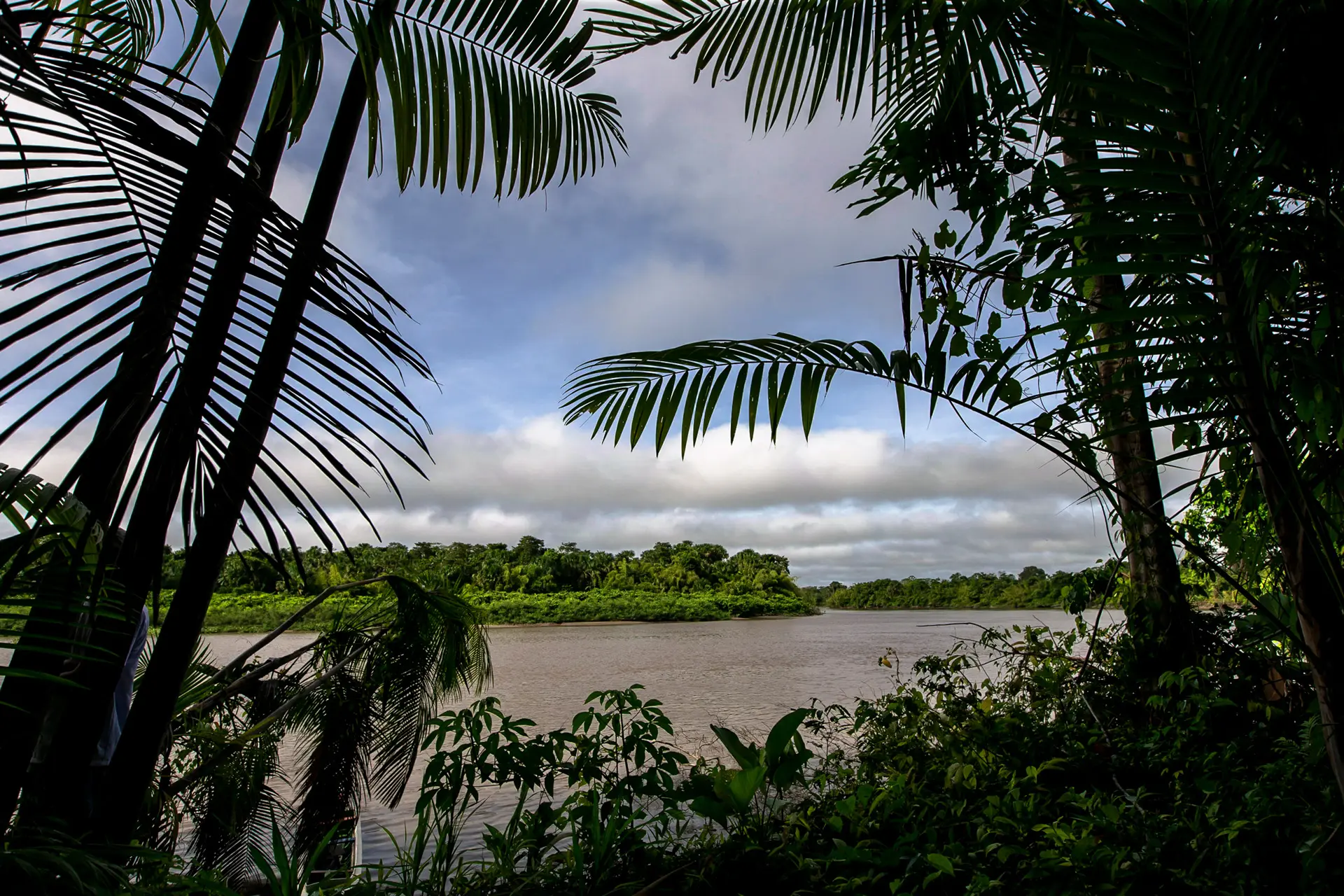
BAILIQUE ARCHIPELAGO, AT THE MOUTH OF THE AMAZON RIVER: DISPUTES OVER CLIMATE FINANCE THREATEN TO BLOCK AGREEMENTS IN BELÉM. PHOTO: ADRIANO VIZONI/FOLHAPRESS
Report and text: Claudia Antunes
Art Editor: Cacao Sousa
Photo Editor: Lela Beltrão
Fact-checker: Plínio Lopes
Proofreader (Portuguese): Valquíria Della Pozza
Castilian translation: Julieta Sueldo Boedo
English translation: Sarah J. Johnson
Copyediting and finishing: Natália Chagas
Editorial workflow: Viviane Zandonadi
Editor-in-chief: Talita Bedinelli
Editorial director: Eliane Brum

